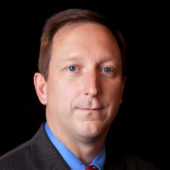Heresy. It’s not a word we hear very often these days, but its concept and consequences are more common then we realize. Dr. Mark Muska says we can define heresy very simply:
“It’s a false teaching. It’s something that does not match up with what the Scripture teaches.”
“There are really significant red-letter heresies, for example, to deny the deity of Christ, that He is the Son of God. Then there are smaller heresies that we could quibble about, certain things with church practices or leadership in the church, probably the foundation of the church is not shaking with them, and yet you still want to be accurate with everything, if you can. That’s the goal.”
The search to understand and follow God’s truth should be of central importance to God’s people. Sadly, debates about right teaching and doctrine have caused serious conflict, even divisions among the church throughout history. But the opposite extreme, allowing false teachings to continue just to avoid the conflict, can contradict our very identity in Christ.
“A lot of people have the attitude that doctrine just starts arguments and we just can’t agree on things. So why can’t we just unite under Jesus?”
“Christianity along with other world religions, is what we call a confessional faith. That means it is based upon historical truth claims that we really consider to be true, and if we don’t hold to those truth claims, then Christianity just kind of dissipates–just like snow on a warm day– it’s going to melt away.
“For example, someone might say ‘let’s unite under Jesus, but you still have to ask, ‘But who is Jesus?’ and come to accurate teaching.”
But how can we determine whether a specific thought or teaching is right according to God? Dr. Muska says the first place to look is the Bible.
“We are Bible-believers: whatever the Bible teaches, if we can figure it out, we’re subject to its authority and we’re obligated to follow it. That has been a big deal for the last generation or so (among Bible-believing evangelicals): whether the Bible is really true or not, and everything that it teaches.
That’s why the concept of biblical inerrancy, or the belief that the Bible isn’t faulty or mistaken, is central to all the other debates:
“We get into a lot of questions about the Bible because that’s the foundational teaching of Christianity. All the other teachings of Christianity (for evangelicals) come from the Bible, so we have to settle that one first. Is this thing reliable? Is it true in everything it affirms? And if it is, then we can depend on it for teaching about Christ, the church, and salvation.”
Dr. Mark Muska is Professor of Biblical and Theological Studies at University of Northwestern St. Paul. Dr. Muska is a regular guest on Connecting Faith‘s Ask the Professor where he answers live calls from listeners.
Heresy, and why truth matters, with Dr Mark Muska



















